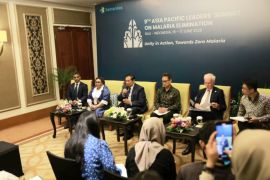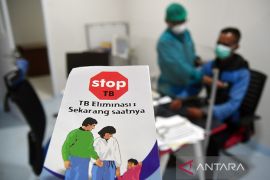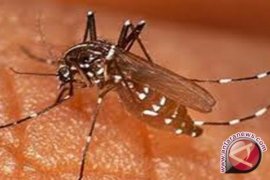"Asia accounts for the second highest burden of malaria, second only to Africa. The Asia-Pacific, which includes 20 malaria-endemic countries, accounts for approximately 88 percent (30 million) of these cases and 91 percent (42,000) of these deaths," the Roll Back Malaria (RBM) Partnership said in a press statement here Friday.
RMB and the report`s author, the World Health Organization (WHO), briefed regional leaders on the impact of malaria on development and health systems in countries outside of Africa.
In the face of persistent economic uncertainty and profound changes in the landscape of global development aid, the region needs strong political leadership.
"It also needs to develop financing strategies that include substantive and sustained domestic investment, traditional multilateral and bilateral aid and truly innovative sources of funding," said RBM Executive Director, Dr. Fatoumata Nafo-Traor.
As "The Malaria 2012: Saving Lives in the Asia-Pacific conference" hosted by the Australian Government draws to a close, health and foreign affairs ministers, malaria experts and representatives from donor and malaria-endemic governments call for a
stronger response in the Asia-Pacific, emphasising the importance of political leadership and regional coordination.
Malaria is a potentially fatal disease which threatens over 2 billion people each year in the Asia-Pacific Region "approximately 67% of the world-s total population of people at risk of malaria.
"We're pursuing the target of a 75 per cent reduction in malaria cases and deaths in the Asia- Pacific by 2015," said Senator Bob Carr, Australia`s Minister for Foreign Affairs.
"Malaria does not respect borders. Our focus must be on cross-regional action alongside traditional single country strategies. Today`s meeting is an opportunity for Asia-Pacific leaders to coordinate efforts in controlling or eliminating the spread of malaria," Senator Carr said.
While much attention has been placed on Africa, this report is the first to shine a light on progress and challenges in the fight against malaria in other regions of the world.
According to the publication, there were approximately 34 million cases of malaria in the regions outside of Africa in 2010, claiming the lives of an estimated 46,000 people.
Throughout the three-day conference, political leaders, public health practitioners and members of civil society discussed key challenges in the region`s fight against malaria, including
emerging resistance to artemisinins, which are central to the efficacy of antimalarial treatment with artemisinin-based combination therapies (ACTs).
Having been detected in Cambodia, Myanmar, Thailand and Vietnam, artemisinin resistance poses a very serious public health concern that stands to unravel the hard-won gains of recent years.
The Asia-Pacific has traditionally been the epicenter for the emergence of drug-resistant malaria parasites, and the global spread of artemisinin resistance - or its independent emergence in other regions - could threaten the fragile gains of the last decade.
"Antimalarial drug resistance is one of the greatest challenges to continued success in controlling and eliminating malaria in the Asia-Pacific," stated Dr. Robert Newman, Director of the WHO`s Global Malaria Programme.
There is an urgent need for coordinated action against this public health threat, as called for in the Global Plan for Artemisinin Resistance Containment.
It will be critical to galvanize political action and secure investments to implement an emergency response plan for the Greater Mekong Subregion.
The fight against malaria has forged one of the most effective initiatives in global public health - the Roll Back Malaria Partnership.
The World Health Organization`s World Malaria Report 2011 indicates that with increased coordination and focus on defeating the disease in the last decade, 43 malaria-endemic countries worldwide have reported declines in malaria cases by 50% or more compared to the year 2000.
Despite this progress, an estimated 216 million malaria cases still occur in the world every year, causing around 650,000 deaths, mostly in children under five years of age.
The Roll Back Malaria Partnership (RBM) is the global framework for coordinated action against malaria. Founded in 1998 by UNICEF, WHO, UNDP and the World Bank and strengthened by the expertise, resources and commitment of more than 500 partner organizations, RBM is a public-private partnership that facilitates the incubation of new ideas, lends support to innovative approaches, promotes high-level political commitment and keeps malaria high on the global agenda by enabling, harmonizing and amplifying partner-driven advocacy initiatives.
RBM secures policy guidance and financial and technical support for control efforts in countries and monitors progress towards universal goals. (*)
(tx/ f001/o001)
Editor: Fardah Assegaf
Copyright © ANTARA 2012










